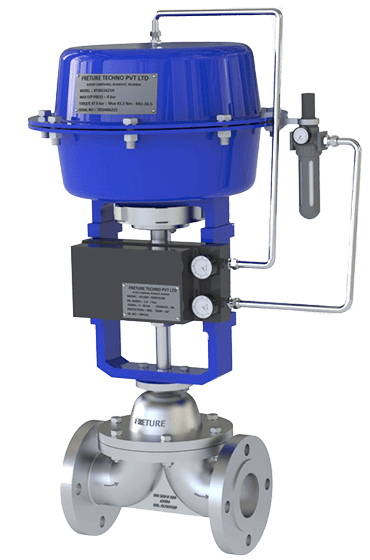Diaphragm valves are widely used across various industries due to their leak-proof operation, corrosion resistance, and precise flow control. These valves are essential in applications where sterility, chemical compatibility, and durability are required. Unlike other valve types, diaphragm valves use a flexible diaphragm to regulate fluid flow, making them suitable for gaseous, liquid, and semi-solid media.
1. Pharmaceutical and Biotechnology Industries
The pharmaceutical and biotechnology sectors require ultra-pure fluid handling systems to prevent contamination and ensure product integrity. Diaphragm valves play a crucial role in applications such as:
Sterile fluid transfer in drug manufacturing.
Clean-in-place (CIP) and steam-in-place (SIP) systems to maintain hygiene.
Filtration and fermentation processes where precision is critical.
Diaphragm valves meet stringent FDA, USP, and cGMP regulations, making them ideal for sterile applications where avoiding cross-contamination is a priority.
2. Food and Beverage Industry
In the food and beverage industry, maintaining hygienic processing conditions is essential. Diaphragm valves are widely used for:
Milk, juice, and soft drink processing to prevent contamination.
Brewing and fermentation systems in the alcoholic beverage industry.
Sugar and syrup processing, where corrosion resistance is necessary.
With their smooth, crevice-free internal surfaces, these valves prevent bacterial buildup and ensure compliance with sanitary standards such as 3A and EHEDG.
3. Water Treatment and Desalination Plants
Diaphragm valves are extensively used in municipal and industrial water treatment plants due to their ability to handle chemically aggressive fluids. Their applications include:
Chlorination and disinfection systems to purify drinking water.
Reverse osmosis (RO) and desalination plants where corrosion-resistant materials are needed.
Industrial wastewater treatment, handling acidic and alkaline fluids.
The use of plastics like PVC and PTFE-lined diaphragm valves ensures longevity in harsh chemical environments.
4. Chemical and Petrochemical Industries
Chemical processing plants deal with highly corrosive and hazardous fluids, requiring valves that can withstand extreme conditions. Diaphragm valves are used for:
Acid and caustic handling systems to prevent material degradation.
Solvent and chemical transfer pipelines where leak-proof performance is critical.
Resin and polymer production, where precise flow control is necessary.
Materials such as PTFE, EPDM, and stainless steel make diaphragm valves an excellent choice for handling aggressive chemicals safely.
5. Semiconductor and Electronics Manufacturing
Semiconductor fabrication requires ultra-pure water (UPW) and chemical handling systems to prevent contamination in microchip production. Diaphragm valves play a key role in:
Etching and chemical vapor deposition (CVD) processes.
Ultra-pure water distribution systems ensuring particle-free fluids.
Gas flow control in vacuum chambers.
The use of high-purity fluoropolymer-lined valves helps maintain strict contamination control in semiconductor cleanrooms.
6. Mining and Metallurgical Processing
Mining operations require valves capable of handling abrasive slurries, acids, and high-pressure conditions. Diaphragm valves are commonly used in:
Ore leaching and mineral processing.
Slurry transportation in metal extraction processes.
High-pressure acid leaching (HPAL) for nickel and cobalt recovery.
Due to their rugged construction and wear-resistant materials, these valves ensure reliable operation in extreme mining environments.
7. HVAC and Industrial Process Control
Heating, ventilation, and air conditioning (HVAC) systems, as well as general industrial processes, rely on diaphragm valves for:
Cooling tower water treatment.
Compressed air and gas control in manufacturing plants.
Industrial steam applications where leak-free operation is required.
With the ability to regulate pressure, temperature, and flow rate, diaphragm valves improve efficiency and reduce maintenance costs in HVAC and industrial systems.
Conclusion
Diaphragm valves are highly versatile and essential in industries where precise fluid control, contamination prevention, and chemical resistance are required. Their use in pharmaceuticals, food and beverage, water treatment, chemicals, semiconductors, mining, and HVAC systems highlights their importance in modern industrial processes. With advancements in smart valve technology and automation, diaphragm valves continue to evolve, providing enhanced efficiency, safety, and reliability in critical applications.

No comments:
Post a Comment